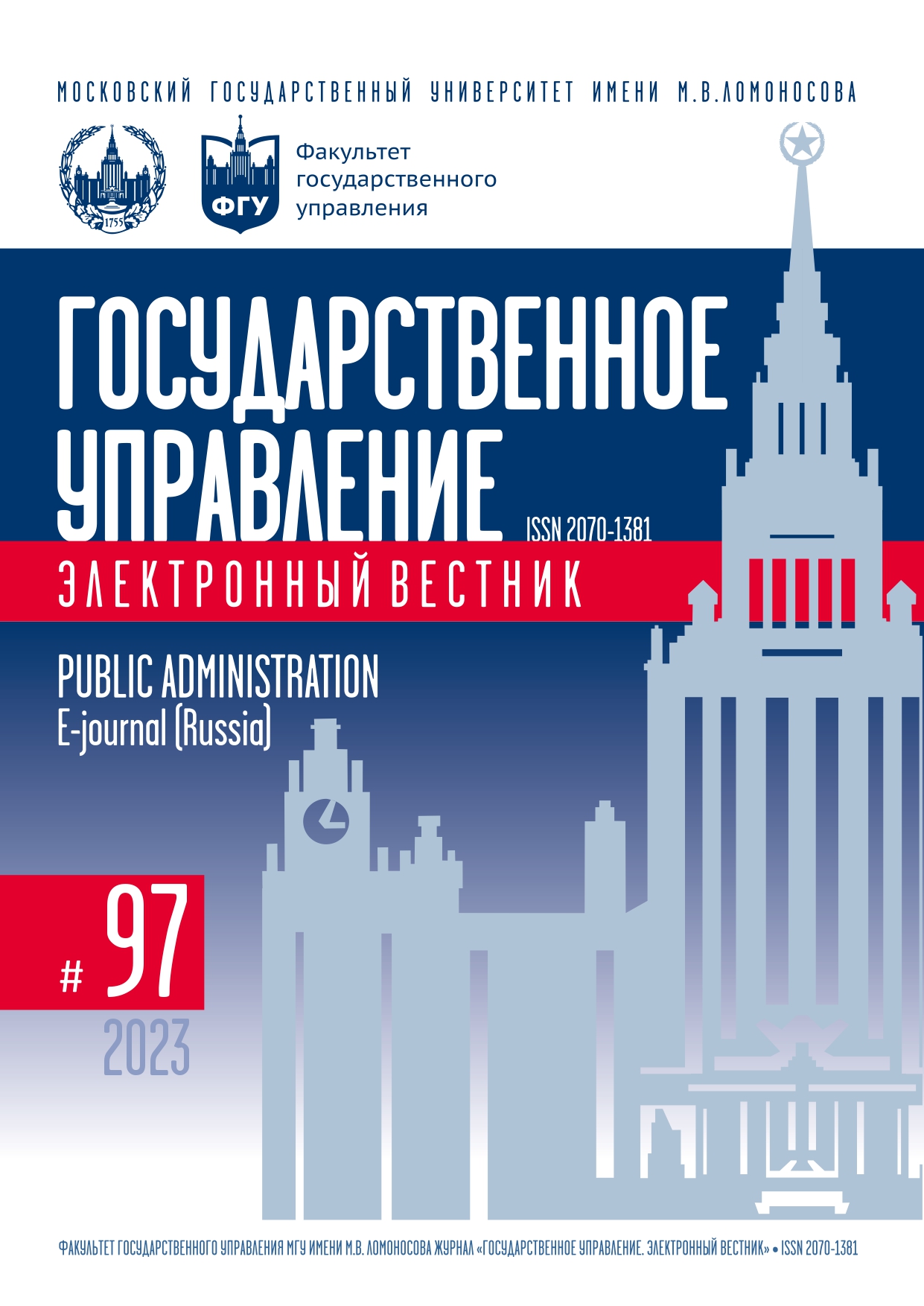State Tariff and Antimonopoly Regulation of the Electric Power Complex: Institutional Aspect
Keywords:
State regulation, tariff policy, antimonopoly policy, electric power complex, regulatory agreement, antimonopoly complianceAbstract
The electric power industry is a basic branch setting the vector for the development of the national economy. The electric power industry is one of the most reformed industries. Improving the efficiency of the antimonopoly and tariff regulation is an important direction of state policy. The antimonopoly and tariff regulation is known to form competition in electric power industry. The main emphasis is made on the transition to long-term regulation as the basis for stable sustainable economic growth and the successful functioning of all market participants. The object of the study is the state tariff and antimonopoly policy; the subject of the study is organizational, economic and managerial relations between state and manufactures arising in the process of the state tariff and antimonopoly policy. The aim of the study is to develop and justify institutional mechanisms for regulating and improving efficiency of the electric power complex. The article presents such research methods as content analysis of theoretical concepts, economic-mathematical and statistical methods, an algorithmization method. Based on these methods, institutional changes in the implementation of the state tariff policy are economically justified. The data of the Federal State Statistics Service and the Federal Antimonopoly Service (FAS Russia) constitute the information base of the article. The main results of the study are 1) justifying the need to develop a method for regulating tariffs in the electric power industry, taking into account the balance of interests of all participants in economic processes and increasing the efficiency of their economic activity; 2) the formation of a long-term tariff policy and specific mechanisms for its implementation (application of the method of standards in justifying costs, conclusion of long-term regulatory contracts based on the maturity level of internal business processes of enterprises of the electric power complex).
References
Антимонопольный комплаенс как эффективный инструмент профилактики нарушений / под ред. С.А. Пузыревского. Москва.: Издательская группа «Юрист», 2019.
Артемьев А.А., Косарев П.Н. Тарифная и инвестиционная политика энергетических предприятий в условиях низкоуглеродного тренда экономики // Экономический вектор. 2021. № 1(24). С. 147–151. DOI: 10.36807/2411-7269-2021-1-24-147-151
Васильев Д.А. Новое в государственном регулировании тарифов электроэнергетических компаний // Экономика и предпринимательство. 2019. № 9(110). С. 161–166.
Васильев Д.А, Орлова Л.Н. К вопросу о необходимости государственного регулирования электроэнергетического комплекса // Вестник Российского экономического университета имени Г.В. Плеханова. 2022. № 4(124). С. 141–154. DOI: 10.21686/2413-2829-2022-4-141-154
Королев В.Г. Современные особенности и состояние электроэнергетической отрасли РФ // Инновации и инвестиции. 2020. № 10. С. 215–219.
Князева И.В., Дозмаров К.В. Антимонопольный комплаенс — профилактика компаниями рисков нарушения конкурентного законодательства // ЭКО. 2020. № 4(550). С. 110–129. DOI: 10.30680/ЕСО0131-7652-2020-4-110-129
Плетешков А.Н. Экономическая эффективность антимонопольного комплаенса для предпринимательских структур // Экономические науки. 2018. № 169. С. 51–53.
Ротбард М. Власть и рынок: государство и экономика. Челябинск: Социум, 2010.
Рыкова И.Н., Табуров Д.Ю. Тарифная политика на основе анализа динамики регулируемых и свободных цен в отрасли электроэнергетики // Вестник Северо-Кавказского федерального университета. 2018. № 5(68). С. 115–126
Савина А.М. Направления формирования и развития конкуренции на основе антимонопольного комплаенса // Финансовая экономика. 2019. № 6. С. 389–393.
Современная рыночная электроэнергетика Российской Федерации / под ред. О.Г. Баркина. М.: Издательство «Перо», 2017.
Стиглер Дж.Дж. Гражданин и государство. Эссе о регулировании. М.: Изд-во Института Гайдара, 2017.
Сушкевич Е.А. Фиксированные тарифы как инструмент стимулирования производства «зеленой» энергии // Экономика. Бизнес. Финансы. 2018. № 4. С. 6–10.
Тироль Ж. Экономика для общего блага. М.: Издательство института Гайдара, 2020.
Чугуевская А.В. Антимонопольная политика Российской Федерации // Инновационные научные исследования. 2020. № 12–1(2). С. 134–139.
Abramov R.A., Tronin S.A., Brovkin A.V., Pak K.C. Regional Features of Energy Resources Extraction in Eastern Siberia and the FAR East // International Journal of Energy Economics and Policy. 2018. Vol. 8. № 4. С. 280–287.
Cooper W.W., Seiford L.M., Tone K. Data Envelopment Analysis. A Comprehensive Text with Models, Applications, References and DEA-Solver Software. New York: Springer-Verlag, 2006.
Depoorter Ben W.F. Regulation of Natural Monopoly // Encyclopedia of Law and Economics. Vol. III. The Regulation of Contracts. Cheltenham: Edward Elgar, 2000. P. 498–532.
Farrell M.J. The Measurement of Productive Efficiency // Journal of The Royal Statistical Society. Series A (General). 1957. Vol. 120. № 3. P. 253–281. DOI: 10.2307/2343100
Kapitonov I.A., Voloshin V.I., Korolev V.G. Eastern Vector of Russian State Policy Development for Ensuring Energy Security // International Journal of Energy Economics and Policy. 2018. Vol. 8. № 5. P. 335–341.
Labeaga J.M., Labandeira X., López-Otero X. Energy Taxation, Subsidy Removal and Poverty in Mexico // Environment and Development Economics. 2021. Vol. 26. Special Is. 3. P. 239–260. DOI: 10.1017/S1355770X20000364
Lechthaler F. Economic Growth and Energy Use during Different Stages of Development: An Empirical Analysis // Environment and Development Economics. 2017. Vol. 22. Is. 1. P. 26–50. DOI: 10.1017/S1355770X16000243

